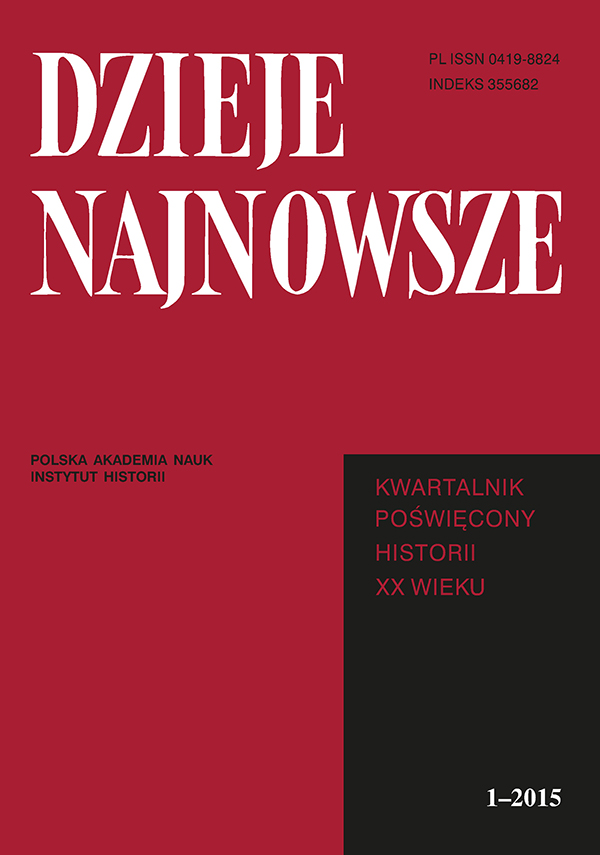Finansowe i ideologiczne znaczenie składek członkowskich w partiach komunistycznych (Komunistyczna Partia Związku Radzieckiego i Polska Zjednoczona Partia Robotnicza)
DOI:
https://doi.org/10.12775/DN.2015.1.06Abstrakt
The Financial and Ideological Significance of Membership Dues in Communist Parties (the Communist Party of the Soviet Union and the Polish United Workers’ Party)The article concentrates on explaining the ideological and financial significance of members’ dues for the functioning of communist parties. In order to illustrate this question the author chose the Communist Party of the Soviet Union (CPSU) and the Polish United Workers’ Party (PUWP); reference is also made to several other communist parties ruling after 1945. The text analysed Communist Party statutes, budget balance sheets, and preliminaries. In doing so, the author proved that statutory decisions about the obligatory co–financing of Party activity are one of the oldest and go back to the early twentieth century. Communist parties prevailing in post–war Europe modelled their statutes on the „Soviet matrix” albeit also introducing own modifications. Regardless of assorted „technical” differences, membership dues played (at least theoretically) an extremely prominent ideological role in the life of both titular parties and their particular members. Great importance was attached to dues conceived as an element merging an individual person and his political group. Nevertheless, the author argued, in time the ideological rank of this factor vanished.
Naturally, dues also possessed a mundane dimension: they financed a given party although, for all practical reasons, they never fully fulfilled their fundamental role. The basic source of financing communist parties involved funds obtained by means of different channels (state budgets, state enterprises, publications, trade), all outside social control. The principles of the communist parties’ financial economy remained a mystery also for the decisive majority of their members, including the so–called party apparatus. The manner of paying dues proved to be an excellent yardstick for assessing the inner stability of the parties and their „enrootment” in society.
The author demonstrated that the CPSU and the PUWP were incapable of successfully tackling assorted problems (whose intensity varied in particular periods) such as an efficient collection of dues and their transference to higher organs, credible records, and the retention of a high percentage of regularly paying members (in particular during political crises). At the same time, attempts were made to apply assorted extra–legal methods for controlling members and candidates upon the basis of so–called Party activists.
Just as important is the fact that in the case of foreign dues currency regulations were violated while bookkeeping makes it impossible to show which investments were financed by dues, and to what extent. This feature was of great significance in particular upon the threshold of the 1990s when Europe became the scene of powerful political transformations and CPSU and PUWP politicians tried to salvage the greatest possible control packet for the sake of new „embodiments” of the old parties.
Pobrania
Opublikowane
Jak cytować
Numer
Dział
Statystyki
Liczba wyświetleń i pobrań: 442
Liczba cytowań: 0



